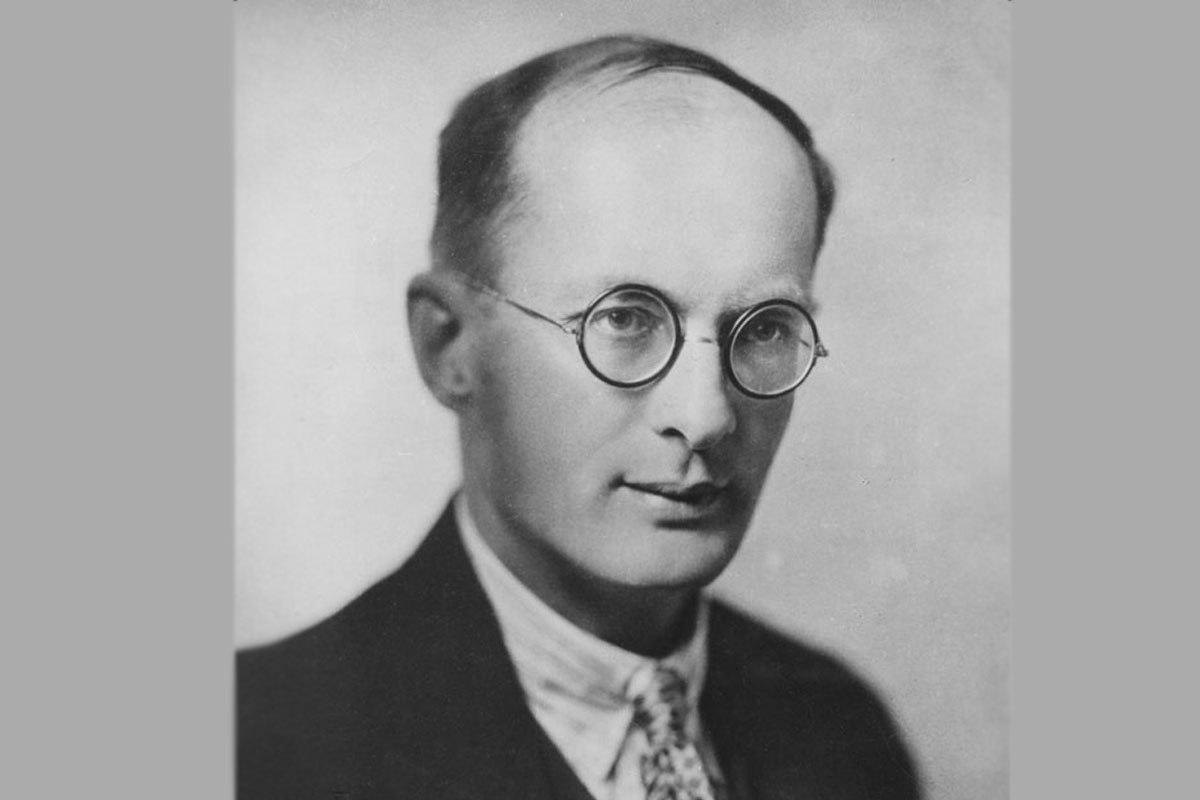



Bronisław Malinowski: Pioneering Anthropologist and Ethnographer

Bronisław Malinowski, a name synonymous with modern anthropology, revolutionized the way we understand human cultures and societies. Born on April 7, 1884, in Kraków, Poland, Malinowski’s innovative methods and insightful theories have left an indelible mark on the field of anthropology. His extensive fieldwork, particularly in the Trobriand Islands, laid the groundwork for future anthropologists, making him a pivotal figure in the study of human cultures. This article delves into the life, work, and lasting impact of Bronisław Malinowski, exploring how his pioneering efforts transformed anthropology into the rigorous and respected discipline it is today.
Early Life and Education
Bronisław Kasper Malinowski was born into an intellectually stimulating environment. His father, Lucjan Malinowski, was a professor of Slavic philology, and his mother, Józefa Łącka, was deeply involved in the intellectual circles of Kraków. This nurturing academic atmosphere played a crucial role in shaping young Malinowski’s intellectual curiosity and academic aspirations.
Malinowski attended Jagiellonian University in Kraków, where he studied mathematics, physics, and philosophy. His academic prowess was evident early on, and he completed his Ph.D. in philosophy in 1908. His dissertation, “On the Principle of the Economy of Thought,” reflected his deep engagement with the philosophical underpinnings of human cognition and action.
Transition to Anthropology
Malinowski’s transition to anthropology was sparked by his interest in the social sciences and the influence of his contemporaries. In 1910, he moved to England to attend the London School of Economics (LSE), where he studied under prominent sociologists and anthropologists, including Charles G. Seligman and Edward Westermarck. At LSE, Malinowski was introduced to the works of Émile Durkheim and Sir James Frazer, which profoundly influenced his thinking.
In 1914, Malinowski embarked on his first fieldwork expedition to Papua New Guinea. This experience was a turning point in his career, leading him to develop a new approach to the study of cultures. Instead of relying on second-hand accounts and the comparative method prevalent at the time, Malinowski advocated for direct, immersive observation of living cultures.
Fieldwork in the Trobriand Islands
Malinowski’s most significant contribution to anthropology came from his extensive fieldwork in the Trobriand Islands, located off the eastern coast of Papua New Guinea. He conducted his research there from 1915 to 1918, amidst the backdrop of World War I. His time in the Trobriand Islands was marked by meticulous observation, participation in daily activities, and an unwavering commitment to understanding the intricate details of Trobriand society.
Participant Observation
One of Malinowski’s most groundbreaking methodological contributions was the concept of “participant observation.” This approach required anthropologists to immerse themselves in the daily lives of the people they were studying, participating in their activities, and gaining a deep, empathetic understanding of their culture from within. This method stood in stark contrast to the armchair anthropology of the time, which relied heavily on second-hand reports and lacked direct engagement with the studied communities.
Malinowski’s dedication to participant observation allowed him to gather rich, detailed data about Trobriand society. He meticulously documented their kinship systems, social structures, economic exchanges, and religious practices. His work provided a holistic and nuanced picture of Trobriand life, emphasizing the importance of understanding cultures on their own terms.
Functionalism
Malinowski is also renowned for his theoretical contributions, particularly his development of functionalism. Functionalism posits that all aspects of a society serve a purpose and contribute to the stability and functioning of the whole. According to Malinowski, cultural practices, institutions, and beliefs should be understood in terms of the functions they perform within the society.
In his seminal work, “Argonauts of the Western Pacific” (1922), Malinowski applied functionalism to the study of the Kula ring, a complex system of ceremonial exchange among the Trobriand Islanders. He demonstrated how the Kula ring was not merely an economic activity but a vital institution that reinforced social bonds, status, and alliances within and between communities.
Major Works and Contributions
Malinowski’s body of work is vast and influential. Some of his most notable publications include:
1. Argonauts of the Western Pacific (1922)
This groundbreaking book is a detailed account of the Kula ring and Trobriand society. It is celebrated for its methodological rigor and rich ethnographic detail. “Argonauts of the Western Pacific” remains a foundational text in anthropology, showcasing Malinowski’s participant observation method and functionalist approach.
2. The Sexual Life of Savages in North-Western Melanesia (1929)
In this work, Malinowski explored the sexual norms, practices, and family structures of the Trobriand Islanders. His detailed descriptions challenged contemporary Western notions of sexuality and kinship, highlighting the diversity of human social arrangements.
3. Coral Gardens and Their Magic (1935)
This two-volume work delved into the agricultural practices and magical beliefs of the Trobriand Islanders. Malinowski examined how agricultural rituals and magic were intertwined with the social and economic life of the community, further illustrating his functionalist perspective.
4. Crime and Custom in Savage Society (1926)
In this book, Malinowski addressed the mechanisms of social control and conflict resolution in Trobriand society. He argued that customary laws and norms played a crucial role in maintaining social order, challenging the notion that “primitive” societies lacked legal systems.
Impact on Anthropology
Malinowski’s contributions to anthropology extend beyond his fieldwork and publications. His innovative methodologies and theoretical insights have profoundly influenced the discipline, shaping the way anthropologists conduct research and understand human societies.
1. Methodological Innovations
Malinowski’s emphasis on participant observation and immersive fieldwork set new standards for ethnographic research. His approach has become a cornerstone of anthropological practice, encouraging researchers to engage deeply with the communities they study and to prioritize firsthand, empirical data.
2. Theoretical Contributions
Functionalism, as developed by Malinowski, has provided a valuable framework for analyzing the interrelatedness of cultural institutions and practices. While later anthropologists have critiqued and expanded upon his ideas, functionalism remains an important theoretical perspective in anthropology.
3. Influence on Future Anthropologists
Malinowski’s work has inspired generations of anthropologists. His students, including notable figures such as Raymond Firth, Edmund Leach, and Meyer Fortes, carried forward his legacy, further advancing the field of anthropology. His influence is also evident in the work of Claude Lévi-Strauss, who built upon Malinowski’s ideas to develop structural anthropology.
Legacy and Continuing Relevance
Bronisław Malinowski passed away on May 16, 1942, but his legacy endures. His pioneering methods and theoretical contributions continue to shape the field of anthropology, influencing both academic research and practical applications.
1. Anthropological Practice
Malinowski’s emphasis on immersive fieldwork and participant observation remains central to anthropological practice. Contemporary anthropologists continue to employ these methods to gain deep insights into the cultures and societies they study.
2. Cross-Disciplinary Impact
Malinowski’s ideas have transcended the boundaries of anthropology, influencing other social sciences such as sociology, psychology, and economics. His functionalist perspective, in particular, has provided a valuable lens for analyzing social institutions and practices in diverse contexts.
3. Public Understanding of Anthropology
Malinowski’s accessible writing style and engaging ethnographic accounts have contributed to the public understanding of anthropology. His works have reached a broad audience, fostering greater appreciation for the complexity and diversity of human cultures.
Conclusion
Bronisław Malinowski’s life and work have left an indelible mark on the field of anthropology. His innovative methodologies, particularly participant observation, and his theoretical contributions, such as functionalism, have profoundly influenced the discipline. Through his meticulous fieldwork and insightful analyses, Malinowski transformed anthropology into a rigorous, empirical science, enriching our understanding of human societies.
As we reflect on Malinowski’s legacy, it is clear that his contributions extend far beyond his own time. His pioneering efforts continue to inspire and guide anthropologists, shaping the way we study and understand the rich tapestry of human cultures. Bronisław Malinowski’s enduring impact on anthropology is a testament to his brilliance, dedication, and profound insights into the human condition.












